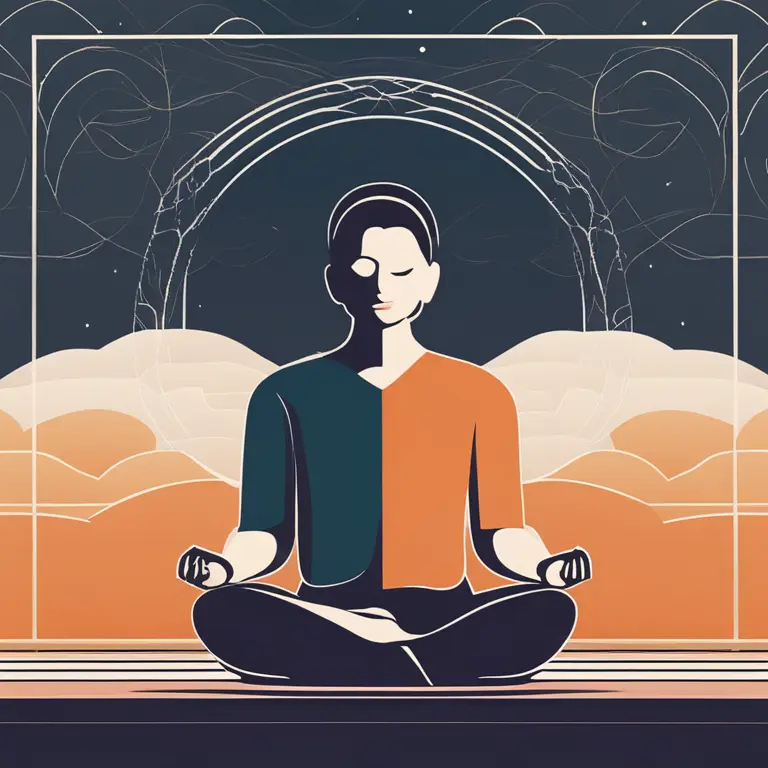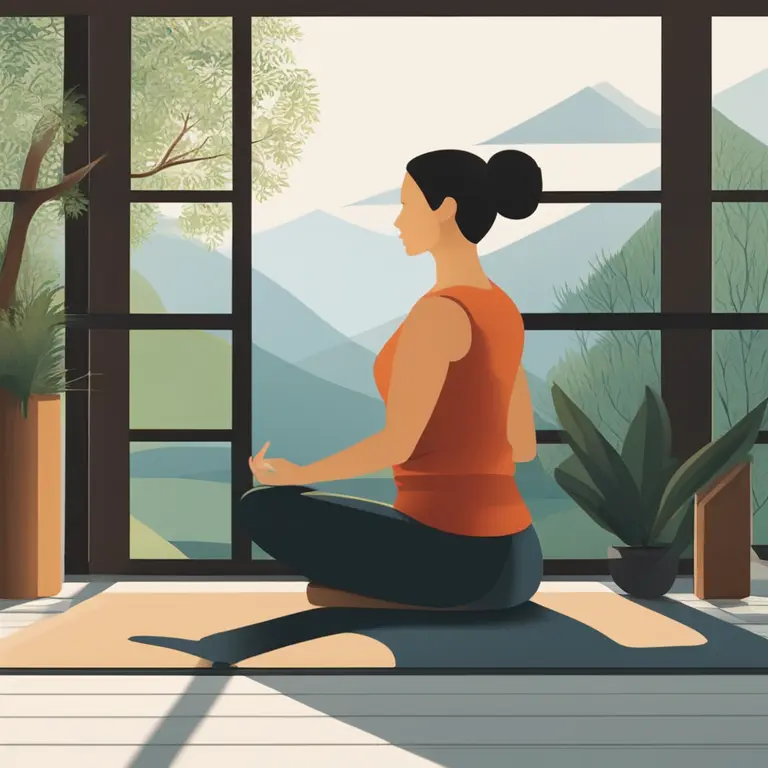
Why Meditation May Induce Sleepiness
Explore the common reasons behind drowsiness during meditation and how you can maintain alertness throughout your practice.
article by Hina Kurosawa
Meditation's Soothing Effect
Meditation is widely known for its soothing and stress-relieving benefits. Often, individuals turn to this age-old practice to calm their minds and alleviate the hustle of daily life. The slower breathing, relaxed body posture, and quiet environment often associated with meditation can inadvertently signal the body that it's time to rest. This relaxation response can be so profound, especially if you're sleep-deprived or stressed, that it leads to a feeling of sleepiness. Understanding this response is crucial to harnessing the full potential of your meditation practice.

Relaxed Awareness Versus Sleep
Achieving a state of relaxed awareness is the goal of meditation; however, it is easy to cross the fine line into sleepiness. The brainwave activity during meditation - particularly in styles that emphasize stillness - closely resembles the activity during the early stages of sleep. This can cause a mix-up in signals, leading some practitioners to drift off. The key is to be aware of the body’s relaxation without succumbing to the urge to sleep, a skill that develops with consistent practice.

Circadian Rhythms and Timing
Your circadian rhythm, or internal clock, plays a significant role in regulating sleepiness. If you meditate at a time when your body is naturally winding down for sleep, you are more likely to feel drowsy. Many people find that their alertness wanes in the early afternoon, a phenomenon often referred to as the 'afternoon slump,' which can be influenced by meal patterns and hormonal fluctuations. Timing your meditation sessions to when you're naturally more alert can help counteract this drowsiness.

Posture and Environment
Your meditation posture and environment are also important factors. Slouching or lying down can encourage sleep, whereas a seated position with an erect spine can promote alertness. Moreover, if you meditate in a warm and cozy setting, your body may take these environmental cues as a prelude to sleep. To maintain alertness, meditate in a relatively cool room and consider positions that are comfortable yet attentive, ensuring your environment supports wakefulness rather than sleep.

Breathing Techniques And Energy Levels
Breathwork plays a pivotal role in meditation and can influence energy levels. Shallow or slow breathing can increase feelings of drowsiness, while more energetic breathing practices - like those found in Pranayama (yogic breathing) - can heighten alertness. Incorporating these more vigorous breathing techniques into the beginning of your meditation practice can invigorate the body and mind, setting a tone of wakeful presence for the duration of your session.
Lifestyle Factors
Lifestyle factors should not be overlooked when considering sleepiness during meditation. Inadequate sleep, high stress levels, and poor diet can predispose you to drowsiness. By addressing these underpinnings, you may find a significant improvement in your ability to remain awake and aware during meditation. Ensuring you get enough rest, managing stress effectively, and eating balanced, nutrient-rich meals will also improve overall health and well-being, further enhancing the quality of your meditation practice.
Adapting Your Practice
Adapting your meditation practice to stay awake may require experimenting with different techniques and environments. Mindfulness, walking meditation, or meditating with open eyes can sometimes combat sleepiness. Remember that meditation is a personal journey, and there is no one-size-fits-all approach. By tailoring your practice to your unique needs and circumstances, you can maintain the balance between relaxation and alertness, paving the way for a fruitful and rejuvenating meditation experience.
Published: 1/14/2024
Modified: 1/15/2024
More predictions
Come back here soon to learn more about yourself and your future


Calming the Storm: Mindfulness Meditation for Anger
Discover how mindfulness meditation can be a powerful tool for anger management, promoting inner peace and emotional balance.


Mindfulness Meditation: A Handbook for High Schoolers
Discover how mindfulness meditation can benefit high school students, enhancing focus, reducing stress, and promoting overall well-being.


Discovering Life with Meditation Mantras
Delve into the transformative power of meditation mantras to harmonize your mind, body, and spirit for a tranquil existence.